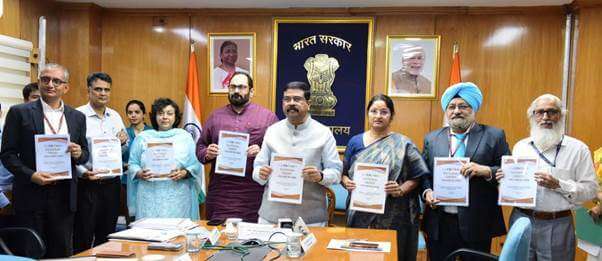On Wednesday, the Union ministry of education launched the draft of the first “National Credit Framework” (NCrF), which combines the credits obtained through school education, higher education, and vocational and skill education. The draft of the NCrF was made available for public consultation by Union Education Minister Dharmendra Pradhan, who referred to it as a “game-changer.”
“It will open numerous options for further progression of students and inter-mingling of school and higher education with vocational education and experiential learning, thus mainstreaming skilling and vocational education. NCrFwill also enable students who have dropped out of mainstream education to re-enter the education ecosystem,” the minister said.
While there is already a credit-based system in place for technical and higher education, school and vocational education will be integrated for the first time. The NCrF strives to integrate learning across all domains, including academics, vocational skills, and experiential learning, including relevant experience and professional levels acquired.
The draft NCrF has been developed by a high-level committee comprising members from the UGC, AICTE, NCVET, NIOS, CBSE, NCERT, education ministry, DGT, and skill development ministry. The draft states that credits will be granted based on learning hours from the fifth grade to the Ph.D. level. Currently, 30 total learning hours per credit are being considered.
“NCrF recognises no hard separation between different areas of learning, i.e. arts and sciences, vocational and academic streams, curricular and extra-curricular for the purpose of assignment of credits and credit levels,” the draft stated.
The NCrF will be launched as a part of the implementation of the National Education Policy (NEP) 2020, which advocates that there should be “no hard separations” between vocational and academic streams. According to the policy, at least 50% of learners through the school and higher education system should be exposed to vocational education by 2025.
Additionally, in order to expand open and distance learning alternatives, credits will be given to students for online programmes.
The Academic Bank of Credits (ABC) will be used to operate the NCrF.
ABC for higher education was introduced last year by the University Grants Commission, which oversees higher education in India. The ABC serves as a digital repository for students’ credits. It is currently only applicable to higher education.














